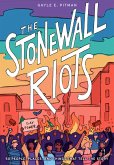In June 1999, the international community, represented by KFOR and UNMIK entered Kosovo, and started one of the most costly peace-building operations ever. In March 2004 a part of the Albanian majority in Kosovo carried out riots that primarily targeted the Serb minority. The riots reversed much of the perceived progress five years of hard work by KFOR and UNMIK after the war in 1999. KFOR and UNMIK failed to use the levers of hard power the principled and decisive application of force or of soft power education, the media and the symbolic environment to convince the vast majority of Kosovars to robustly support Kosovo s new legal and political order. UNMIK and KFOR were never able to change a situation where a sizable segment of the population pursued crime and militancy. The rule of UNMIK and KFOR created an atmosphere of impunity which directly contributed to the expectations and attitudes that led to the riots of March 2004. Key lessons identified are the need to define an end-state, to eliminate national caveats, and to base realistic expectations on thorough study of history.
Hinweis: Dieser Artikel kann nur an eine deutsche Lieferadresse ausgeliefert werden.
Hinweis: Dieser Artikel kann nur an eine deutsche Lieferadresse ausgeliefert werden.








